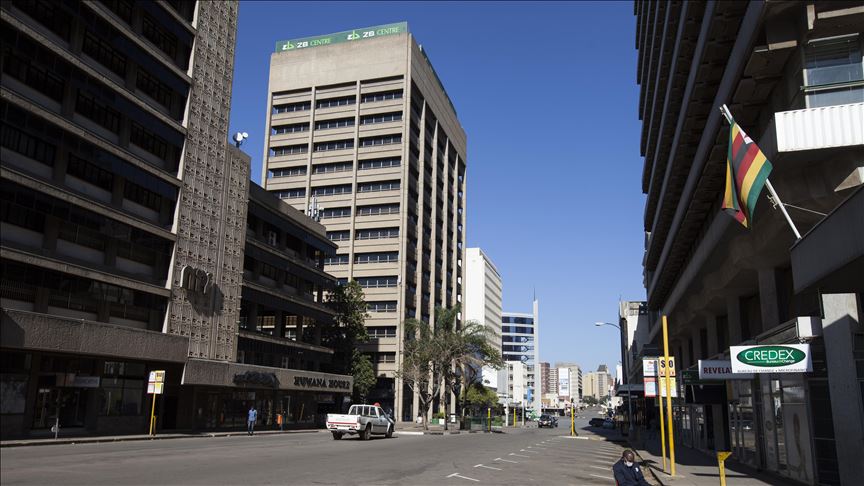
CHAKARI, Zimbabwe
Facing an uncertain economy, for thousands of children in southern African country of Zimbabwe, who are toiling in an underground gold mine, the World Day Against Child Labor on Friday is just any other day.
Adorning torn clothes, barefoot, and laced with dangerous chemicals used in mining, children like 14-year old Jimson Bande are engaged in this gold rush over the past many years in Chakari village in the western province of Mashonaland.
But unlike 19th-century gold rush explorers, these children remain poor, even after discovering gold.
Speaking to Anadolu Agency, Bande said he had run-away from his home in Chivi, a district in the Masvingo province, south of the country because his parents were unable to pay his school fees.
“I dropped out of school because my parents could not afford my school fees. I joined my friends to come and find work. Maybe one day I will return to school if I make enough money,” he said.
At a distance from the mine, a group of 17 boys and girls aged from 12-16 are working at a farm plucking cotton from plants and filling sacks hanging from shoulders.
Rodwell Mhaka (15), Bande’s friend, said he had arrived from the small town of Chakari.
With the falling economy and steep inflation, the poverty is leading, children like Jimson and Rodwell to abandon studies and earn money for their survival, despite strict labor laws, which prohibit engaging children blow 18-years.
According to the economic survey, inflation has reached to 765% in the country rich with gold mines. The local currency has lost value against the US dollar.
But, even then, laws governing labor in Zimbabwe have always been clear in their definition of child labor.
“We want money and they want manpower. Nobody enquires age, when they give job,” Mhaka told Anadolu Agency. It is a gold rush for employers as children cost as little as $2 a day.
According to Brian Chigodora, a child rights activist, when across the world, people are confined to homes, due to lockdown to stem the spread of COVID-19, children in Zimbabwe are out working in mines and fields.
Parents happy
The parents of this child laborers are also happy that they are bringing money home.
“I am poor personally and I could not support my child. I should thank my son for the support he is giving us now as a family,” said 46-year old Gibson Bande, Jimson’s father.
In 2018, Zimbabwe had tried to eliminate the worst form of child labor by implementing an action plan to stop human trafficking. It also increased budget allocations for education.
The country has also ratified all key International Conventions concerning child labor which include the International Labor Organization Convention related to minimum age or work.
The minimum age for hazardous work was set at 18 years. But, with the fragile economy, these measures seem to have no impact on the ground, say child rights activists.
Anadolu Agency website contains only a portion of the news stories offered to subscribers in the AA News Broadcasting System (HAS), and in summarized form. Please contact us for subscription options.


